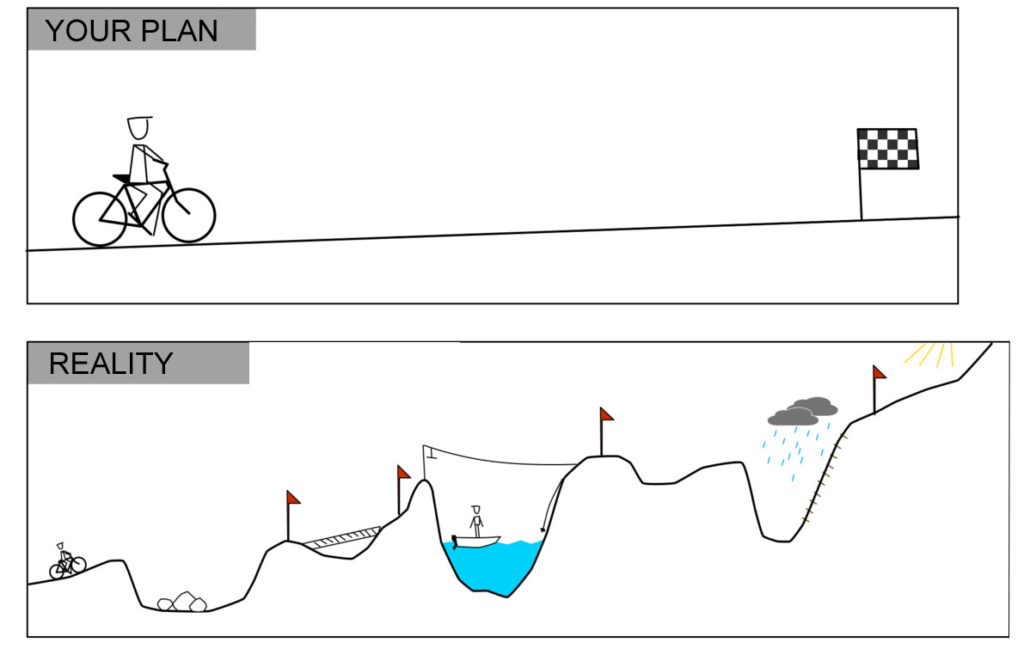I step down as the FACCL lab manager this month. I worked as the lab manager from 2013 to 2021 – an 8-year span. During this time, I completed my undergraduate degree, my Honours year, and my PhD. In this time, I learnt many valuable lessons that I feel will benefit future students wishing to embark on a similar journey. Below I have written a letter to my former self, a letter I wish I had had before I began my journey.
Dear Deanne,
First and foremost, you are not here by mistake (ah imposter syndrome, you constant companion). Have patience and be kind to yourself. The journey to PhD, through PhD, and into academia is long – but so worth it.
You always wanted to be a scientist – you love the brain, the epicentre of what makes us human. You want to understand why things go wrong – particularly with memory. You will study neuroscience, learning what a “normal” brain is and how – through damage or disease – people lose their memory. Then one day you will see Professor Daniel Simons’ Monkey Business Illusion video. This will introduce you to the idea that “normal” brains can also get things wrong. This realisation will lead you to the study of cognitive psychology, and the fact that we all have the capacity to make memory errors.
A sudden interest in cognitive psychology will lead you to do a placement with Melanie Takarangi. Melanie’s work is fascinating, and right away you know this is where you want to be. Melanie’s lab will be in its infancy, but she wants to build a team of researchers with a scaffold of support, a collaborative and encouraging team which will grow to become a huge support network for her researchers. When writing, you are told to stand on the shoulders of giants – to build on others’ research. This is true of doing a PhD, make sure you have a supervisor/mentor who will lift you up to where you want to be.

Working in Melanie’s lab will give you the opportunity to mentor students. From undergraduate placement, to Honours students spending a year with us, through to Masters and PhD students. Your desk will fill with “thank you” cards from students you help along the way. You love “thank you” cards now, you keep them as mementos of all the people you helped. They live above your desk and brighten your day when you are feeling blue. But “thank you” cards are not the only thing that mentoring will give you. Here you will discover a love of introducing students to research, and a new future will open up for you: the idea of becoming not just a researcher, but a lecturer too.
Becoming a lecturer is hard, many would describe it as highly competitive. But you won’t spend your PhD focussing on becoming a competitive applicant for future jobs, you will instead focus on saying “yes” to opportunities when they come your way. Even when you are scared (e.g., public speaking at a conference) or you think you aren’t good enough (e.g., giving a guest lecture), or you think that it’s irrelevant to your field (e.g., the Academic Internship Program). Seize these opportunities! You will find that each opportunity leads to more, and ultimately, adds lines to your CV.
A question you have now is how can I stay motivated for 4 whole years? The best advice I can give you is to celebrate every milestone, no matter how small. If you do that, you will notice yourself moving forward, and each rejection will not feel like a knock back. Remember the journey to success is not a straight line, it’s full of pits and valleys, but as long as you are moving forward, you will get there.

I know you are having doubts about embarking on this journey, so I want to leave you with some positives: you will make lifelong friends (talk to people!); you will travel the world (apply for conferences!); you will learn so many new skills (say yes!). Take time to be with friends, appreciate your family, and most importantly: enjoy this journey. It is the most fun you will ever have.
Deanne